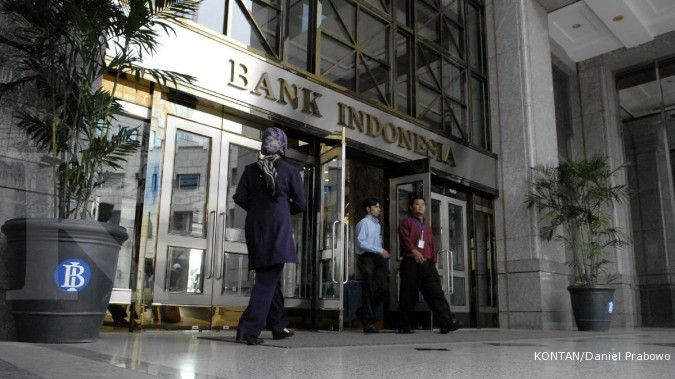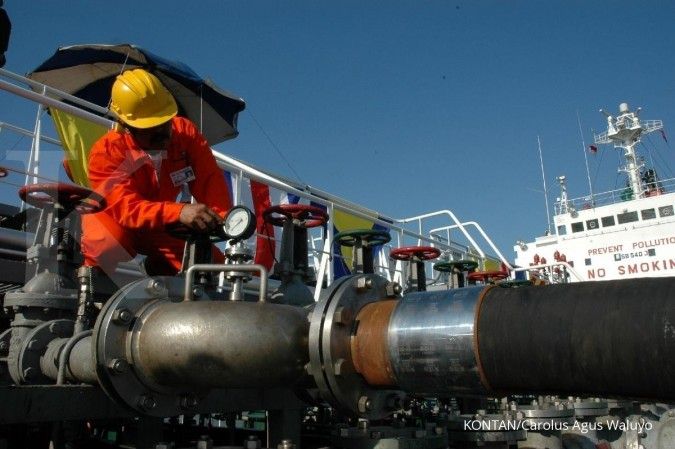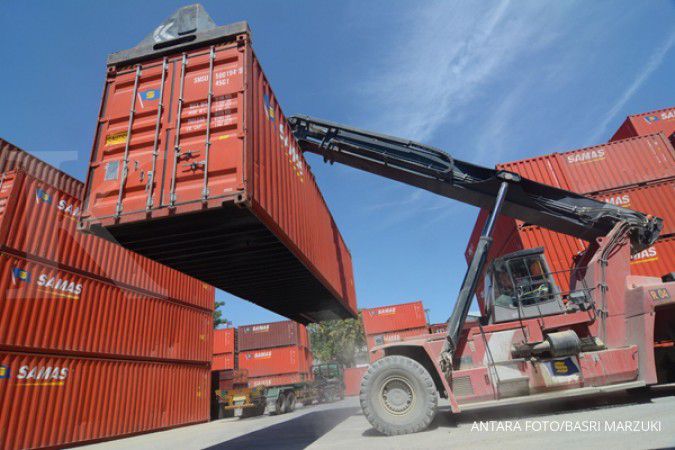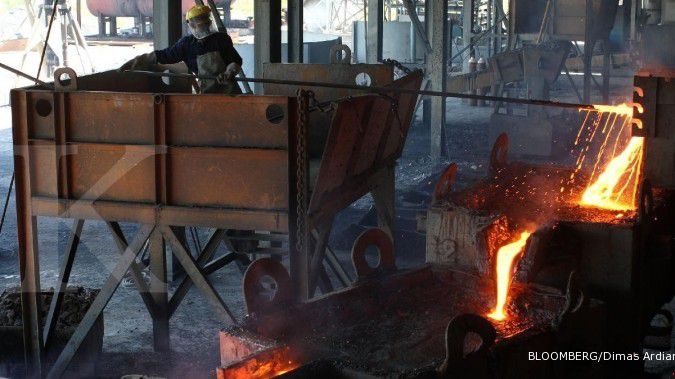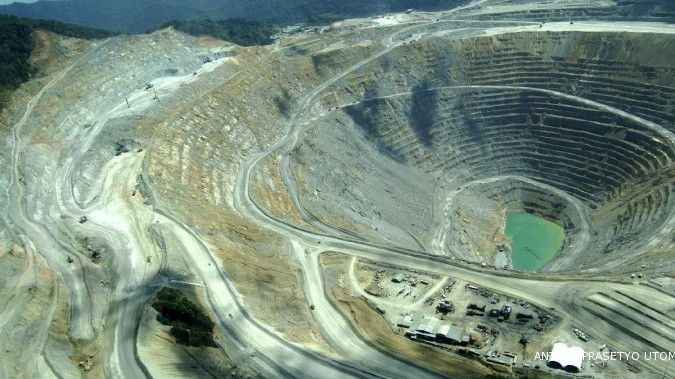JAKARTA. PT Newmont Nusa Tenggara (NNT), a subsidiary of United States-based Newmont Corporation, has filed for international arbitration against the government over its ore-export ban policy, which the company claims has cost it dearly.
The firm had filed the arbitration with the Washington-based International Center for the Settlement of Investment Disputes (ICSID), requesting an interim solution to allow NNT to resume exporting copper concentrate so that its Batu Hijau mine could resume operations, it said in a press statement on Tuesday.
The ore-export ban, which became effective on Jan. 12, had halted NNT’s Batu Hijau production and violated both the contract of work (CoW) between the company, in which Dutch firm Nusa Tenggara Partnership BV has a major shareholding, and the government, as well as a bilateral treaty between Indonesia and the Netherlands, said the company.
“Despite our best efforts over the last six months to resolve the export issues through good faith commitments to supporting the government’s policy, NNT has been unable to convince the government that our CoW should guide resolution of our differences,” said NNT president director Martiono Hadianto in a statement.
Energy and Mineral Resources Ministry director general for minerals and coal R. Sukhyar said that the government would first examine details of the filing before taking any measures.
“We regret the firm’s decision […] We believe that everything can actually be settled,” he said.
“This situation will put a stop to our renegotiation process with the firm for some time,” he added.
Sukhyar said that NNT had previously conveyed its disappointment with the government’s ore-export ban and had declared force majeure despite intense discussion about the policy.
The ore-export ban requires mining firms in the country to export only processed minerals in a bid to develop the country’s downstream industry and provide added-value for exported mineral products.
The government has relaxed the regulations by allowing mining firms to continue exporting their mineral concentrates until 2017, when they will all be required to fully process their mineral products either in jointly owned smelters or in their own smelters.
During the interim period before 2017, the government has decided to impose progressive export duties ranging from 25 percent this year to 60 percent in 2016.
NNT previously said it would pay US$25 million to the government as a guarantee, known as a surety bond, of its commitment to build a smelter in the country in return for an export permit for its current semi-finished mineral with 95 percent copper concentrate.
Sukhyar said, however, that Newmont’s commitment to paying the bond had not yet materialized.
Meanwhile, PT Freeport Indonesia which is the local arm of US-based mining giant Freeport McMoRan Gold & Copper Inc., has recently deposited $115 million in a surety bond, he said.
Sukhyar said, however, that his ministry had yet to grant an export permit to Freeport.
“We will first continue our negotiations with Freeport on getting a memorandum of understanding [MoU] on issues such as royalty payments and contract extension. When that’s done, we will move on to the export permit,” he said.
In addition to the Energy Ministry, Coordinating Economic Minister Chairul Tanjung has also repeatedly announced that the government was working on an MoU that would be legally binding on the next government.
One of the points in the MoU was a guarantee for Freeport, which operates the world’s second-largest copper mine and the world’s largest gold reserves in remote Papua, to extend its operation after its contract expires in 2021. (Khoirul Amin and Raras Cahyafitri)
Newmont go to arbitration over ore export ban
July 02, 2014, 10.47 AM
/2014/06/13/1269962566.jpg)
ILUSTRASI. Manfaat buncis untuk kesehatan.
Source: The Jakarta Post
| Editor: Hendra Gunawan
Latest News
-
March 02, 2026, 04.45 PM
Indonesia has Seized 5 Million Hectares of Palm Oil Plantations, Task Force Says
-
March 02, 2026, 01.10 PM
Asian Assets Slide as Mideast Strikes Spark Oil Spike, Haven Rush
-
March 02, 2026, 10.49 AM
Bank Indonesia Monitoring Market Movements in Response to Conflict in Middle East
-
February 25, 2026, 08.28 PM
Inpex to Solicit Bids for Construction of Indonesia's Abadi LNG Project in Mid-2026
-
February 24, 2026, 03.38 PM
Eni to Reach Final Investment Decision for Indonesia Gas Projects Next Month
-
February 24, 2026, 01.00 PM
Asia Stocks Try to Steady after Wall Street Selloff Sims Mood
-
February 23, 2026, 04.50 PM
Wall Street Futures and Dollar Slide on Trump Tariff Tumult
-
February 23, 2026, 02.17 PM
Indonesia's Government Spending Jumps 26% in January 2026
-
February 23, 2026, 01.47 PM
Indonesia's Government Spending Jumps 26% in January
